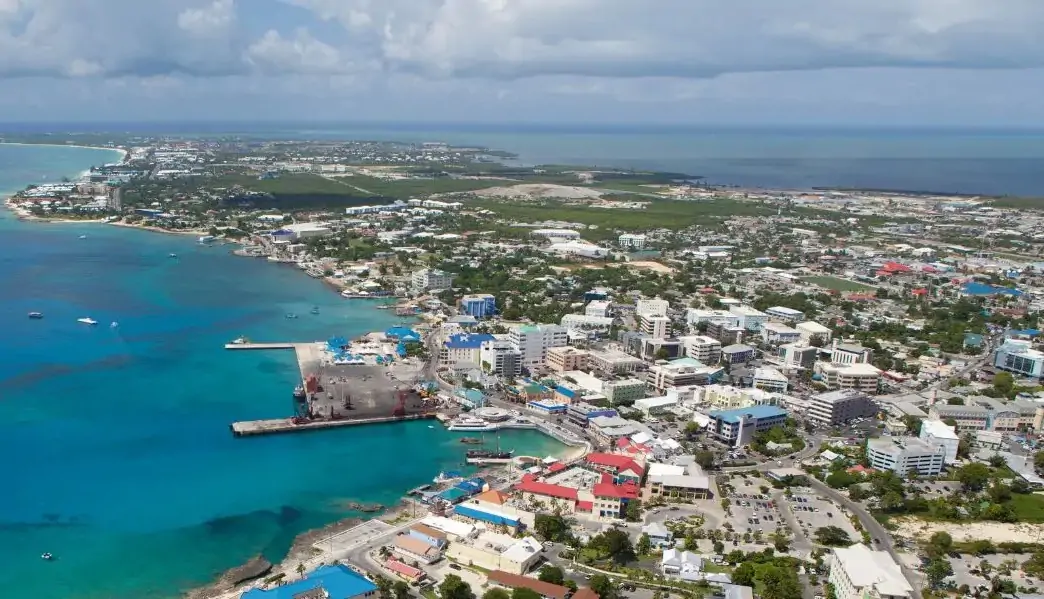The Cayman Islands which is known for their stunning biodiversity and eco-sensitive landscapes are under siege and on the verge of destruction if not taken measurements. The islands are grappling with increasing environmental challenges, surrounded by climate change and unsustainable development practices.
The significance of this issue is underscored by the islands’ reliance on their pristine marine and coastal ecosystems for tourism and fishing as both of these sectors play a vital role in the country’s economic growth. As per the current legal framework, led by the National Conservation Law (2013), sets the backing for critical environmental protection. This law is a cornerstone and shield for preserving and protection of biodiversity, protecting endangered species, and managing natural habitats. It designates “protected areas,” restricting activities like construction and land clearing in these zones. But, while the intentions are noble, are we doing enough?
The Planning and Development Law, which governs land use, demands environmental assessments for new projects. Ideally, this would align development with sustainability goals. However, the harsh reality is that economic interests often overshadow environmental concerns. The recent controversy over the proposed East-West arterial road project, which threatens to devastate vital wetland habitats, highlights this imbalance. The government’s apparent prioritization of infrastructure over ecological well-being raises alarms.
Additionally, the Environmental Protection Fund supposedly offers financial backing for conservation initiatives. Yet, there’s a lingering question of whether these funds are adequately and effectively utilized. Cases of delayed funding and bureaucratic red tape have hindered urgent conservation efforts, as seen in the slow response to the Sargassum seaweed invasion that wreaked havoc on local beaches and marine life.
Rising sea levels, stronger storms, and escalating coastal erosion are no longer distant threats but immediate realities of the 21st Century. The government’s Climate Change Policy Framework is a step in the right direction which was taken this year specifically discussed in my previous opinion, featuring commitments to international agreements like the Paris Agreement and Cayman as a role model to adopt such policy. However, the lack of a cohesive and proactive national strategy remains glaring amongst the nations. It is not enough to react to climate impacts; we must anticipate and adapt. Countries like Cayman, Maldives and others in the Pacific for instance are at higher risk as compared because of their Island Nature already.
Take, for example, our coastal areas. Laws and updated Building Codes aimed at promoting resilience are laudable. Yet, the enforcement of these standards remains inconsistent, and loopholes are frequently exploited. Furthermore, more ambitious legal reforms are crucial. Comprehensive climate adaptation and mitigation strategies need embedding in our long-term policy planning. Recent scientific warnings about the increasing frequency of severe hurricanes in the Caribbean should spur immediate action.
Marine conservation laws, such as the Marine Parks Regulations, offer another layer of protection. These regulations restrict activities like fishing and diving to protect coral reefs and diverse marine life. Yet, illegal fishing persists, and enforcement is sporadic at best. The health of the Cayman Islands’ marine ecosystems, crucial for both the economy and environmental balance, hangs in the balance. Our legal measures must be rigorous and their enforcement relentless.
Sustainable tourism is another critical area. Tourism remains the economic backbone of the Cayman Islands, yet it is also a sector that can either preserve or destroy the environment. Current Tourism Development Laws mandate environmental impact assessments for new projects, ensuring a measure of sustainable planning. However, monitoring and compliance are inconsistent. The infamous case of the cruise port development project, which threatened coral ecosystems and met with substantial public opposition, illustrates the tension between economic development and environmental preservation.
Eco-certification programs in the tourism sector, intended to promote environmental performance, are steps in the right direction. However, engagement and incentivization of businesses require greater efforts. The wider tourism industry must commit to sustainability, prioritizing long-term environmental health over short-term gains. Our reputation as a pristine and responsible tourist destination depends on it.
Enforcement and compliance issues remain formidable barriers. The powerful development interests often circumvent regulations, and illegal activities persist. Effective enforcement requires well-resourced and empowered authorities. Strengthening our legal framework’s implementation should be a top priority.
Public awareness and community engagement are fundamental. Educating the populace about the benefits of conservation and sustainable practices can stimulate community participation and compliance. Grassroots movements have shown their potential to influence change, evidenced by the success of the Plastic Free Cayman campaign in reducing single-use plastics.
We are at a critical juncture. Legal instruments must evolve and adapt to face the growing environmental threats. Integrating sustainability into all facets of development, from urban planning and tourism management to natural resource conservation, is crucial. The Cayman Islands have the potential to lead by example among small island nations in sustainability.
This potential can only be realized through rigorous legal frameworks, proactive governance, and robust enforcement of the laws because whether it’s Cayman, USA, or Somalia the only thing which makes the difference is the rule of law and its implementation. We have the opportunity to strike a balance between ecological preservation and economic prosperity. The future of the Cayman Islands along with its natural beauty, its biodiversity, and the well-being of its people, all of these figures and aspects depend on the choices we make today. By steadfastly committing to enhanced environmental laws and active community involvement, we can safeguard the environment for generations to come not only of Cayman but the rest of the World as well.





